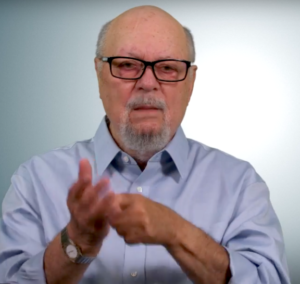By Lifestyle on June 20, 2019 at 7:18 AM
The World Health Organization (WHO) estimates that by the year 2020, the global number of people over the age of 60 will almost double, growing from 12% to 22% of the population.
Your senior years can be some of the most fulfilling and enriching of your life. Yet, to stay agile, it’s important to take precautions. There are numerous old age problems that can pop up as you approach this season of life.
Today, we’re taking a look at 10 of the most common. Understanding how to prevent and treat these concerns is your ticket to golden years that live up to their name.

Ready to learn more? Let’s go!
1. Chronic Health Issues
What do 80% of older adults have in common? They all have at least one chronic health issue. Of that number, 68% have two or more.
The term “chronic” means that these diseases persist over time and have long-lasting effects. From heart disease and diabetes to strokes and cancer, there are a host of serious medical concerns that can appear as you age.
To stay as well as possible, it’s important to schedule annual checkups with your physician and monitor your body for any signs of change. You should also keep an active lifestyle to the greatest extent possible, and follow a healthy diet.
2. Mental Health Disorders
There are currently around 34 million Americans over the age of 65, and depression affects more than 19 million of them.
While this is one mental health concern linked with aging, there are several other co-occurring disorders linked to clinical geriatric depression. These include Alzheimer’s disease, arthritis, Parkinson’s disease, cancer and more.
The debilitating effects of these conditions can cause seniors to sink into feelings of loneliness and despair. These emotions are only exacerbated if a spouse or close friend dies.
To keep your spirits up, seek community at every corner. One great resource is your local senior citizen center. Here, you’ll find peers you can connect with, activities to partake in, and plenty of listening ears.
3. Cognitive Decline
It might start with forgetting where you placed your keys or second-guessing whether or not you turned the oven off. Over time, general forgetfulness can give way to failing cognitive health.
By 2050, the WHO estimates that the current population with dementia (more than 35 million people worldwide) will almost triple in size. This thief of a disease can impact your ability to reason, remember, think, and learn.
To sharpen your mind and help prevent this condition, abstain from behaviors that can trigger it, such as substance abuse and smoking. You may also be at a heightened risk if you suffer from diabetes, hypertension, HIV or depression.
Though there is no cure for dementia or its most common form, Alzheimer’s disease, your doctor can prescribe a treatment plan to help you manage the condition.
4. Sexually Transmitted Diseases
You’ve heard that your libido can slow down as you age. That’s why it may be surprising to hear that HIV/AIDS and other STDs are common elderly problems.
The reality? The Centers for Disease Control and Prevention (CDC) notes that around half of the people living with AIDs in the United States are 50 and older.
Though your sexual needs may shift as you get older, they don’t disappear. However, you may change your approach. With pregnancy no longer a viable concern, it’s common for seniors to forego the use of condoms.
That action, coupled with an immune system that weakens as you age, makes this group more susceptible to contracting such diseases. Moreover, many of the symptoms you’ll experience after contracting HIV, including muscle soreness, fatigue, loss of appetite and night sweats, are common signs of normal aging. This leads many seniors to put off seeing a physician, which worsens the condition.
5. Falls
Every 11 seconds, emergency room doctors treat an elderly person for a fall. Every 19 minutes, an older adult dies from injuries sustained after one.
This makes falls the top cause of injury among the aging population. Why is this group more prone to lose its balance?
The answer lies in your bone density and muscle mass. As you get older, your bones shrink. At the same time, your muscles weaken and become more rigid.
Not only does this throw off your equilibrium, but it also makes the physical aftermath of a fall more painful, as you’re more likely to bruise or fracture a bone.
While some conditions including osteoporosis and osteoarthritis can lead to bone and muscle decline, there are steps you can take at home to keep yours as strong as possible. Talk to your doctor about strength-building exercises and seek to take walks and engage in light activity often. You can also make modifications to your home to help prevent slips and falls.
6. Vision and Hearing Impairments
Do you find yourself reaching for your reading glasses more often? Do you tend to ask people to repeat themselves at a more frequent rate?
It isn’t in your head. Sensory impairments become more common as you age, with vision and hearing loss being the top two conditions.
To make sure you can keep up and enjoy the world around you, don’t be afraid to share these concerns with your doctor! Often, all that’s needed is a stronger glasses prescription or hearing aids and you’ll be all set.
The best part? Bulky devices are becoming a thing of the past. Advancements and innovation in technology mean that devices are sleeker and more inconspicuous than ever before. There are even hearing aid apps!

7. Malnutrition
Often, malnutrition sneaks up on the elderly, occurring as a symptom of another disorder. For instance, a depressed senior may be too distraught to think about food. Or, one suffering from dementia may forget to eat.
To keep your nutrition in check, focus on making small, beneficial changes to your diet. Seek to increase your consumption of fruits and vegetables, as well as healthy fats and lean proteins. While you’re at it, reduce the amount of sodium and saturated fat you intake.
These tweaks can help ensure that your diet is as well-rounded as possible. It may help to set a reminder on your watch or smartphone when it’s time for a snack or meal.
If you’re cutting back due to a limited income or reduced mobility, reach out to food assistance organizations in your area. Many will bring food to your doorstep for free or a reduced rate.
8. Substance Abuse
Like HIV, this is another one of those elderly care issues you may not associate with the senior population.
Still, research shows that more than one million people over the age of 65 suffer from a substance use disorder. While this can include alcoholism, the umbrella also covers drug abuse linked with prescription pain medication.
Because many seniors receive prescriptions for multiple drugs to be taken for a long period of time, it’s common to become hooked on them, especially if a mental deficit is present. Or, an older person may take someone else’s medication in addition to or in place of his own.
Follow your prescription instructions and speak to your physician if you believe your use may turn unhealthy for any reason.
9. Oral Health Issues
Even if you no longer have your natural teeth, it’s important to stay on top of your oral health as you age. From dry mouth and gum disease to oral cancer, there are many diseases that can still occur.
If you are lucky enough to maintain your chompers, take care of them. Even a small cavity can make it difficult to eat, which snowballs into malnutrition and other medical concerns. Brush after every meal, remember to floss and visit your dentist at least twice a year.
If you no longer have dental insurance and are putting off visiting the hygienist due to financial concerns, find a senior citizen resource in your community and voice your concerns. Clinics may hold reduced-rate days for seniors, or you may be able to sign up for a plan that at least covers basic cleanings.
10. Incontinence and Constipation
These issues may be on opposite sides of the spectrum, but they’re both valid concerns for older adults.
While these conditions can begin as a result of simple aging, they’re often triggered by another medical event, such as malnutrition or the onset of chronic disease.
To maintain your bladder control as long as possible, stick to a healthy diet and follow an exercise plan. If you begin to experience symptoms, bring them up to your physician as soon as possible. These are common health problems that are often easy to manage.
Ward Off These Old Age Problems and Thrive
Getting older means getting better. It’s your time to grow wise, pursue your passions, slow down, and share your insights with the youth of this world.

Yet, if you suffer from old age problems, it can feel like you’re sentenced to spend the remainder of your years in distress.
It doesn’t have to be this way.
The key to staying well as you get older is to keep in constant communication with your doctor. At the first sign of any of these issues, speak up and heed the advice given. You can’t prevent every disease, disorder, or condition but you can do your part to mitigate its effect on your quality of life.



